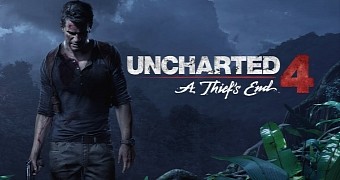One of the most divisive trends in the modern video game industry is that of microtransactions, small real money payments that gamers can make to get access to items that sometimes are not earnable through normal gameplay.
Eric Monacelli, who has been a community strategist for Naughty Dog and now works for Infinity Ward as a director of communications, has a positive view of the concept and believes that gamers should be ready to pay for the good work delivered by a studio.
The developer tells MCV that, for The Last of Us, his team decided to introduce a burst rifle for those willing to pay to give players who were limited in their skills or experience a chance to go up against the rest of the community with a slight advantage.
Monacelli says personal preference is at the center of Naughty Dog's effort to add more content to its title because the community needs to have options in order to enjoy the title.
He adds, "the more thought that's put into DLC, the more you should be able to charge for it because it's one of those things where you're creating another game unto itself – The Last of Us: Left Behind was another game. It's essentially the second Last of Us game, right? It's work, and you should pay for good work."
Naughty Dog has already said that it has post-launch downloadable content plans for the upcoming Uncharted 4: A Thief's End, but it's unclear whether they plan to include microtransactions for weapons and other gameplay-related items in the multiplayer side of the title.
Real-world money payments offer a new revenue stream for the industry
Bungie has said that it has introduced microtransactions to Destiny via the Eververse Trading Company, which only offers emotes at the moment, to get the resources required to sustain a live team that can deliver more free events and quests for the social shooter.
What makes some fans unhappy is Activision's stance that classic paid expansion might also be launched for the title in the coming months.
Rainbow Six Siege also plans to allow gamers to spend real-world money to get access to new operators that will arrive as part of DLC although gamers also have the options of playing for about 25 hours to get them.
Even in Halo 5: Guardians players can spend currency to REQ card packs, which has driven some to claim that the new Warzone experience, which uses them extensively, is designed to be pay-to-win.
Developers are right to say that gamers should pay for quality content and that it's a good idea to give players alternatives when it comes to their time or money commitment.
Monacelli's comments will not make him a favorite of the Naughty Dog fan base, especially if the studio introduces a lot of microtransactions in Uncharted 4: A Thief's End.
Infinity Ward is at the moment working on a new Call of Duty title, which has not been officially announced, which will presumably feature some real-money payments linked to its multiplayer.

 14 DAY TRIAL //
14 DAY TRIAL //